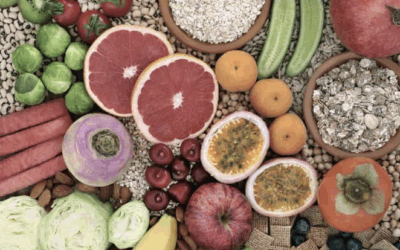Polycystic ovary syndrome (PCOS) is a serious genetic, hormonal, metabolic, and reproductive disorder. It affects about10% of women of childbearing age in the U.S. and is the leading cause of infertility in women. PCOS can also lead to obesity, type 2 diabetes, cardiovascular disease, endometrial cancer, severe hair and skin issues, anxiety, and depression.
Insulin Resistance and PCOS
Understanding the important role of insulin in the body can help to comprehend what happens when the body becomes insulin resistant due to PCOS or type 2 diabetes.
Effectively, insulin plays two roles in the body; the first is to regulate blood sugar levels and the second is to store excess glucose as energy that can be used at a later stage.
For example, after eating natural sugars or sugars that are added to foods, the body’s enzymes break the sugar down into glucose, which then enters the bloodstream. Once sugar is detected in the bloodstream, insulin is normally released from the pancreas to help the body absorb the glucose and use it as energy.
Any excess glucose is stored in the liver in the form of glycogen and released when insulin levels are low, usually between meals, to maintain blood sugar levels.
PCOS and Insulin Resistance
Although medical professionals realize that there is a connection between PCOS and insulin resistance, the cause and effect relationship between the two is not 100% clear.
For instance, even though PCOS symptoms like ovarian cysts, irregular menstruation, and infertility can manifest in advance of symptoms associated with insulin resistance, some experts suggest that increased levels of insulin may contribute to the metabolic complications connected to PCOS.
Does Everyone with PCOS have Insulin Resistance?
No, not all women with PCOS have insulin resistance, which is why the cause of PCOS is unclear. Despite being a common sign/symptom of PCOS, insulin resistance is not a factor for every patient. In addition, insulin resistance does not affect everyone in the same way.
Factors that help manage PCOS
- Choose healthy fats:Too much saturated and trans fat in the diet can lead to high blood pressure and high cholesterol. Limit foods that contain saturated and trans fats. Instead of these fats, choose healthier unsaturated fats, which are found in vegetable oils like canola and olive oil, avocado and nuts.
- Increase fibre: Eating more fibre can help maintain blood sugar levels and lower your cholesterol. Plus, it’s good for your digestive system and helps you feel full. Aim for about 25 grams per day.
- Enjoy protein: Make sure that you have some protein at every meal. Choose protein foods that come from plants more often. Plant-based protein foods can provide more fibre and less saturated fat than other types of protein foods. Try to eat protein foods such as beans, peas, lentils, nuts, seeds and tofu as well as lean meats and poultry, eggs and fish.
Are there Supplements that can help?
While supplements should only be recommended by your health care provider some nutrients have shown promise. For example, some women with PCOS may benefit from a vitamin D supplement if they are deficient or may benefit from taking omega-3 and probiotics. Inositol has also received attention in support of PCOS, however dosage recommendations should be based on individual assessments.
To find out how our naturopaths can help you manage PCOS, reach out today for a free discovery call.



